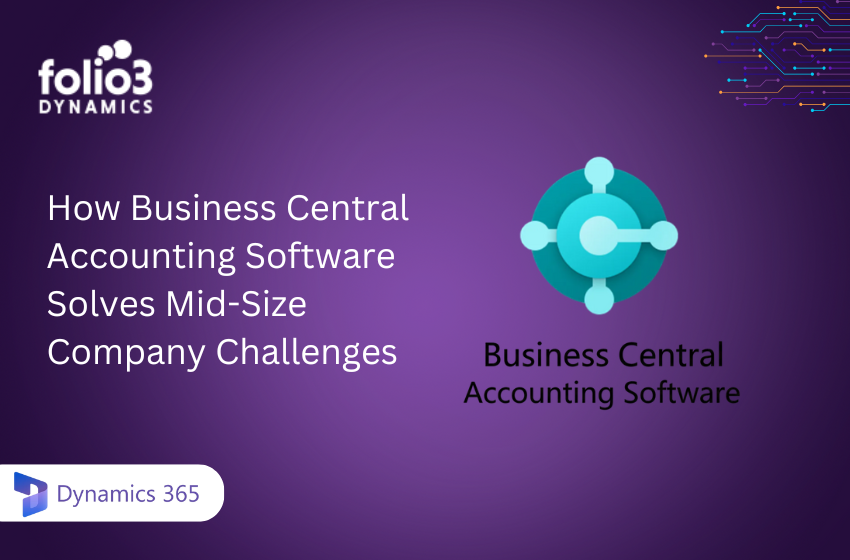In today’s fast-paced business environment, efficiency and organization are key to staying competitive. And for small business owners, office managers, and IT professionals, streamlining processes isn’t just a goal—it’s a necessity.
One way to achieve this is by adopting a cloud-based document management system (DMS) specifically designed to integrate with Dynamics 365 Business Central. This powerful combination offers significant benefits, from improved document accessibility to enhanced security and regulatory compliance.
What is a Cloud-Based Document Management System?
A cloud-based document management system is a solution hosted on the cloud that allows businesses to store, manage, and track electronic documents and images. Unlike traditional, on-premises DMS solutions, a cloud-based DMS offers scalability, flexibility, and accessibility from any device with an internet connection. When integrated with Dynamics 365 Business Central, a cloud-based DMS can elevate your business processes to new heights.
Benefits of Integrating a Cloud-Based DMS with Dynamics 365 Business Central
Integrating a cloud-based DMS with Dynamics 365 Business Central not only streamlines document handling but also maximizes productivity by centralizing information and simplifying workflows. Here are some of the key benefits of this integration:
1. Enhanced Accessibility and Collaboration
One of the most significant advantages of a cloud-based DMS is accessibility. With documents stored in the cloud, employees can access critical information anytime, anywhere. This is particularly beneficial for remote teams or businesses with multiple locations.
Integration with Dynamics 365 Business Central ensures that documents related to financials, sales, purchasing, and operations are readily available within the platform, facilitating seamless collaboration.
2. Improved Security and Compliance
Security is paramount when it comes to document management. A cloud-based DMS typically offers advanced security features, including encryption, multi-factor authentication, and regular backups.
Additionally, compliance with industry regulations like GDPR, HIPAA, and SOX becomes more manageable. Dynamics 365 Business Central, combined with a secure DMS, helps ensure that sensitive information is protected and that your business meets regulatory requirements.
3. Streamlined Document Management
Integrating a cloud-based DMS with Dynamics 365 Business Central streamlines document workflows and reduces manual tasks. Automated document capture, indexing, and storage improve efficiency and accuracy.
For example, invoices, purchase orders, and contracts can be automatically routed to the appropriate department for review and approval, reducing processing times and minimizing errors.
4. Cost Savings
Moving to a cloud-based DMS can result in significant cost savings. There’s no need for expensive on-premises infrastructure or maintenance costs. Instead, you pay a subscription fee based on your usage, which can be scaled up or down as needed.
Furthermore, the integration with Dynamics 365 Business Central reduces duplication of effort and lowers administrative costs by automating routine tasks.
5. Enhanced Search and Retrieval
A robust cloud-based DMS offers powerful search capabilities, enabling users to locate documents quickly and efficiently. Integration with Dynamics 365 Business Central means that relevant documents are linked directly to transactions, accounts, and projects.
This connectivity ensures that users can retrieve the information they need without leaving the Dynamics 365 environment, saving time and improving productivity.
6. Scalability and Flexibility
As your business grows, a cloud-based DMS can scale with you. There’s no need to worry about outgrowing your document management system or facing costly upgrades. Cloud-based solutions are designed to accommodate increasing volumes of data and users.
Integration with Dynamics 365 Business Central ensures that your document management processes remain efficient and effective as your business evolves.
How to Implement a Cloud-Based DMS with Dynamics 365 Business Central
Implementing a cloud-based DMS with Dynamics 365 Business Central requires careful planning and execution. Below are the essential steps to ensure a smooth and successful integration:
Step 1: Assess Your Needs
Before implementing a cloud-based DMS, it’s essential to assess your business’s specific needs. Consider the volume of documents you manage, the types of documents, and the workflows involved. Identify pain points and areas where efficiency can be improved.
Step 2: Choose the Right DMS
Select a cloud-based DMS that integrates seamlessly with Dynamics 365 Business Central. Look for features such as automated document capture, advanced search capabilities, and compliance with industry regulations. Ensure the solution is scalable and offers robust security measures.
Step 3: Plan Your Implementation
Develop a detailed implementation plan, including timelines, resources, and key milestones. Involve stakeholders from various departments to ensure the DMS meets their needs and that they understand how it will benefit them. Address any potential challenges and develop strategies to mitigate them.
Step 4: Train Your Team
Training is crucial for successful implementation. Provide comprehensive training for all users, including how to use the DMS, best practices for document management, and how to leverage the integration with Dynamics 365 Business Central. Consider ongoing training and support to address any issues that arise.
Step 5: Monitor and Optimize
After implementation, continuously monitor the system’s performance and gather feedback from users. Identify areas for improvement and make necessary adjustments to optimize efficiency. Regularly review and update your document management processes to ensure they remain aligned with your business’s evolving needs.
Conclusion
Integrating a cloud-based document management system with Dynamics 365 Business Central offers numerous benefits for small business owners, office managers, and IT professionals. From enhanced accessibility and security to streamlined workflows and cost savings, this powerful combination can transform your business operations.
By assessing your needs, choosing the right DMS, planning your implementation, training your team, and continuously optimizing the system, you can harness the full potential of cloud-based document management and drive your business toward greater efficiency and success.


